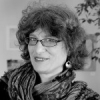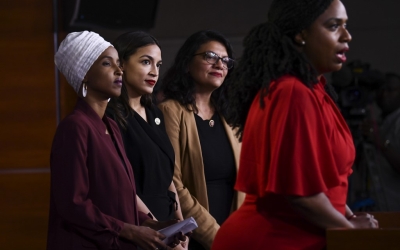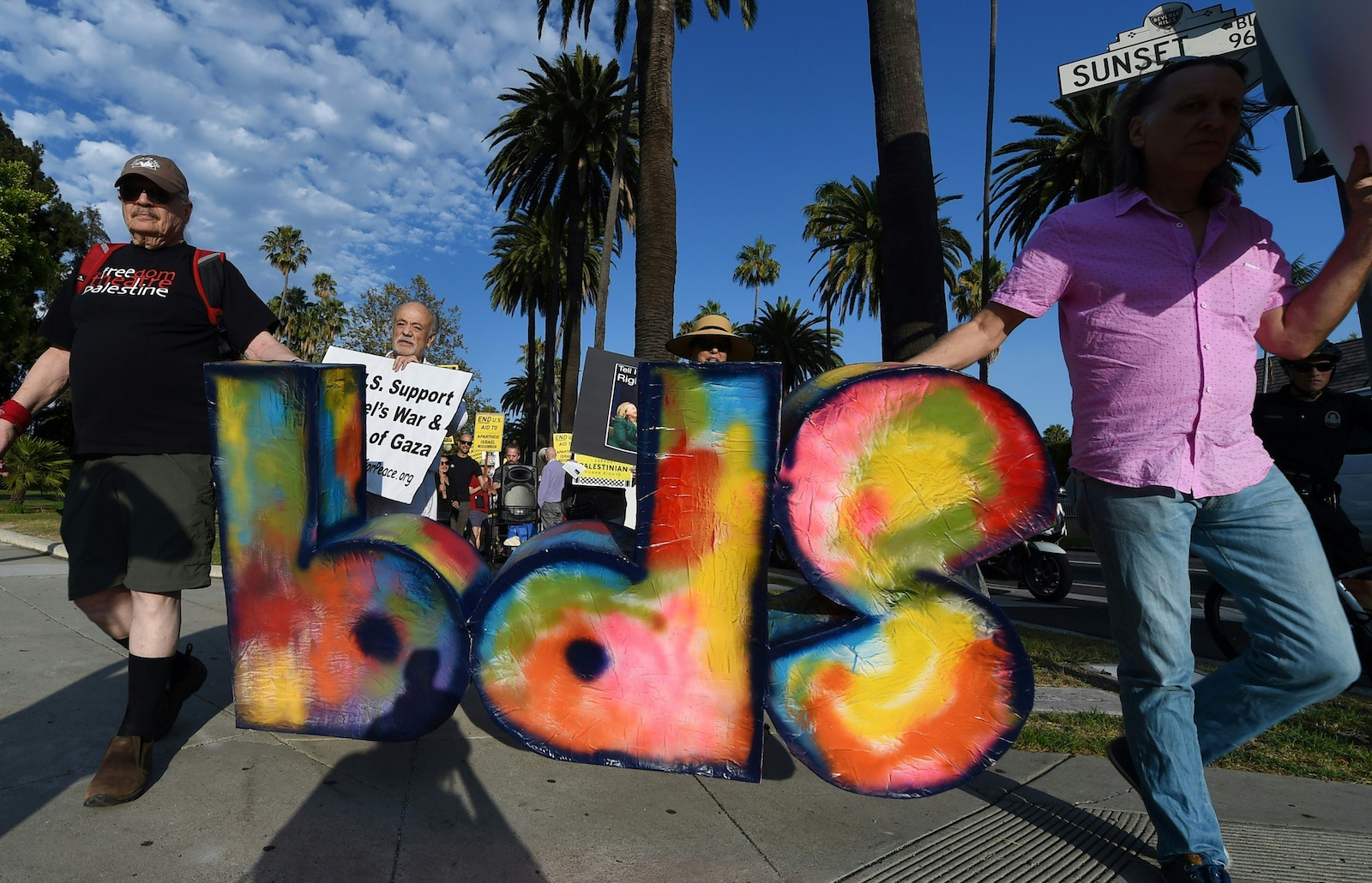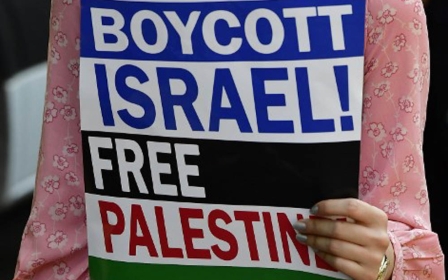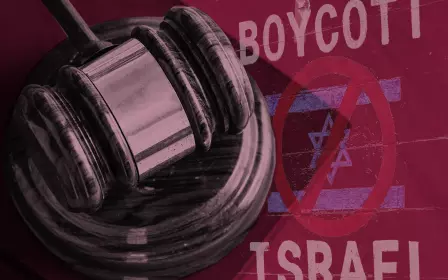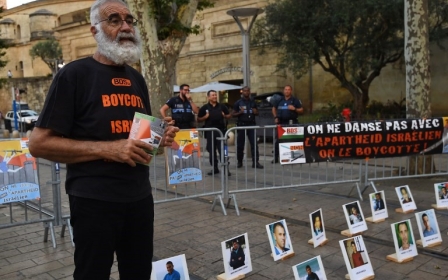What's behind Ayanna Pressley's anti-BDS vote?
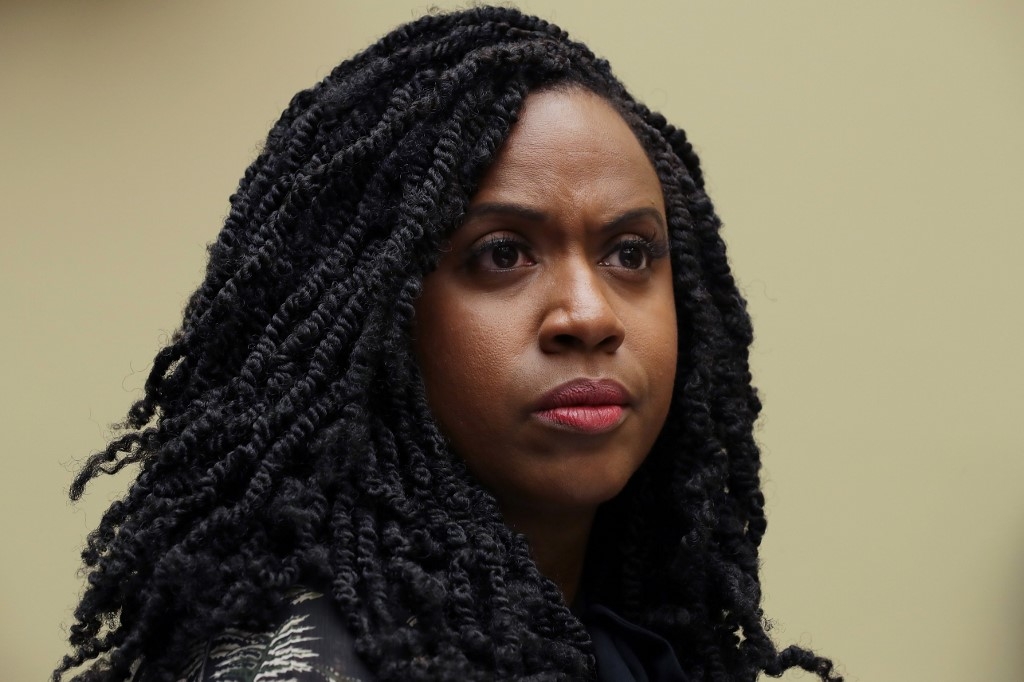
When Congresswoman Ayanna Pressley cast her vote in favour of Resolution 246, which condemns the Palestinian call for global solidarity in the form of boycott, divestment and sanctions (BDS), many activists expressed disappointment, outrage and surprise.
Most had assumed that Pressley, the first-year congresswoman from Massachusetts and a member of the “Squad”, the team of rookie women-of-colour politicians dubbed “the future of the Democratic Party”, would support organising for Palestine.
It was widely assumed that as an African American with a long history of activism, Pressley would support boycotts, which were instrumental in ending segregation in the US.
Zionist interests
Pressley clearly became aware of the criticism from progressives almost immediately after she cast her vote, as she issued multiple tweets and statements justifying what University of California professor David Lloyd aptly described as a “political defense of the indefensible”.
New MEE newsletter: Jerusalem Dispatch
Sign up to get the latest insights and analysis on Israel-Palestine, alongside Turkey Unpacked and other MEE newsletters
For long-time Boston-area activists for Palestinian rights, however, Pressley’s vote condemning BDS came as no surprise. Heike Schotten, a faculty member at the University of Massachusetts Boston, told me via email that Pressley had long been associated with Zionist groups and interests.
The campus group Faculty & Staff for Justice in Palestine, of which Schotten is a member, had planned to protest Pressley’s keynote speech at an Anti-Defamation League dinner on their campus - an appearance Pressley cancelled only because she was injured, not because she had reconsidered the ADL’s legacy of anti-black and anti-brown practices.
Another Boston-based activist, Sara Driscoll, a member of the Alliance for Water Justice in Palestine, also shared with me that Pressley had long shunned attempts by Boston-area Palestine rights activists to meet with her and discuss their concerns.
Driscoll, a cofounder of City Life/Vida Urbana, a progressive housing organisation in Boston, told me in a phone conversation that because of Pressley’s solid record as a city council member on issues such as housing rights, climate work, and girls and mothers, she was approached by multiple organisations about Palestine, but has been evasive - at best - in responding to requests for meetings.
A 'consummate politician'
When Driscoll met Pressley at a housing rally shortly after her announced run against former representative Mike Capuano and approached her about Palestine, Pressley gave Driscoll her business card and mobile phone number, saying she would love to have a meeting and conversation. But Pressley never once personally responded to any of Driscoll’s calls or emails, Driscoll told me.
When the Massachusetts Peace Action group asked both Pressley and Capuano about their views on Palestine, Driscoll said Pressley’s answers echoed the standard AIPAC lines about “Jewish democracy”, two states, and accountability on “both sides”.
Driscoll described Pressley as a “consummate politician” who, when pressed about Palestine, offered mostly platitudes with no substance - unlike her strong stances on various other progressive matters.
“Pressley never responded to initial outreach,” Driscoll told me, “and repeated attempts throughout the year to schedule a meeting with her and/or her staff led to lots of emails that led nowhere, until a full year later”, when some of Pressley’s staff met with a couple of local groups.
I reached out to Pressley's office for comment but there was no response by the time this piece went to publication.
Over the years that she served on the Boston city council and stonewalled meeting requests from Palestine rights activists, Pressley was developing strong ties with Zionist organisations, such as the Jewish Community Relations Council of Greater Boston. Its executive director, Jeremy Burton, told the Times of Israel: “The Jewish community in Boston has enjoyed a warm and productive relationship with congresswoman-elect Pressley during her nine years holding a Boston citywide elected position.”
The Jewish Community Relations Council’s homepage explains that it “pursues social justice, ensures a vibrant Jewish community, and builds a network of support for Israel”.
The hasbara textbook
Indeed, Burton also told the Times of Israel that “Pressley has sought out the input and perspectives of our leaders and organisations on a range of issues, including the US-Israel partnership”. Again, this is in stark contrast to the experience of Palestine rights organisers.
It must be over those years when she was meeting with Jewish leaders and stonewalling Palestine activists that Pressley developed the Zionist views she posted on her congressional website: “I do not support BDS as a means to achieve a two-state solution because I believe it does not acknowledge the efforts of those on the ground who are deeply committed to bringing peaceful coexistence to the region, and pushes Israelis and Palestinians farther away from the meaningful engagement and dialogue needed to empathize with each other’s struggle and acknowledge each other’s humanity.”
These lines come straight out of the Zionist hasbara textbook, which blames BDS, rather than Israeli apartheid, for the lack of peaceful coexistence and meaningful engagement among Israelis and Palestinians.
Nor does she acknowledge that there actually is vibrant collaboration among Jews, including Israelis, and Palestinians and their allies, around co-resisting Israel’s violations of international law - a co-resistance that is a precondition to peaceful coexistence. Indeed, a growing number of Jews, especially younger Jews, are increasingly critical of Israel, and insist on their alienation from the country that claims to speak in their name.
Not giving up
Driscoll insisted, however, that we should not give up on Pressley, but instead keep supporting her, and nudging her towards understanding that support for Palestinian rights is a progressive issue.
Being progressive on Palestine is an expectation; indeed, a responsibility
Indeed, even as we acknowledge that Palestine is not the only issue requiring immediate action - the environment, climate change, global refugees, immigration reform and women’s right to bodily sovereignty immediately come to mind - we must point out to Pressley that unless she stops providing a “defense of the indefensible”, she cannot convincingly claim to be progressive.
Pressley’s campaign slogan was that “activism can’t wait”, as she explained on her website: “Activism is no longer an option, but is the expectation of our generation.”
It is our responsibility as organisers to also explain to Pressley that a Palestine exception is no longer an “option” for progressives - instead, being progressive on Palestine is an expectation; indeed, a responsibility.
The views expressed in this article belong to the author and do not necessarily reflect the editorial policy of Middle East Eye.
Middle East Eye delivers independent and unrivalled coverage and analysis of the Middle East, North Africa and beyond. To learn more about republishing this content and the associated fees, please fill out this form. More about MEE can be found here.


